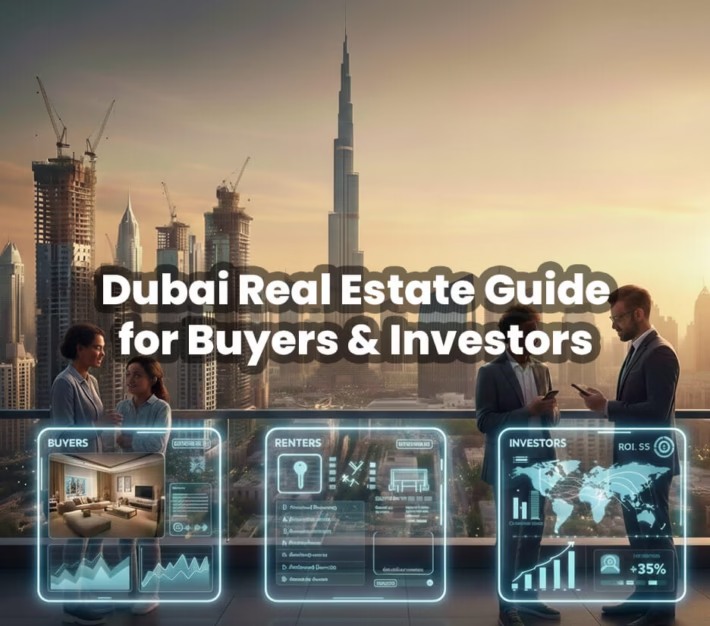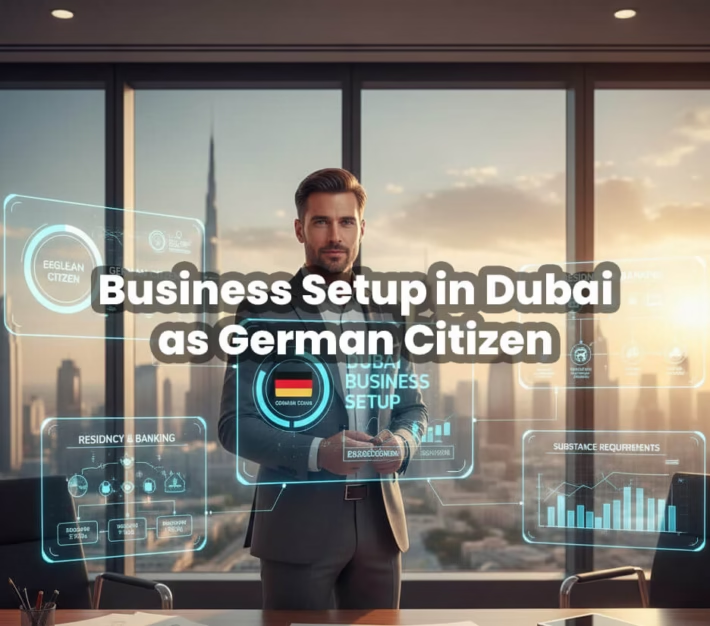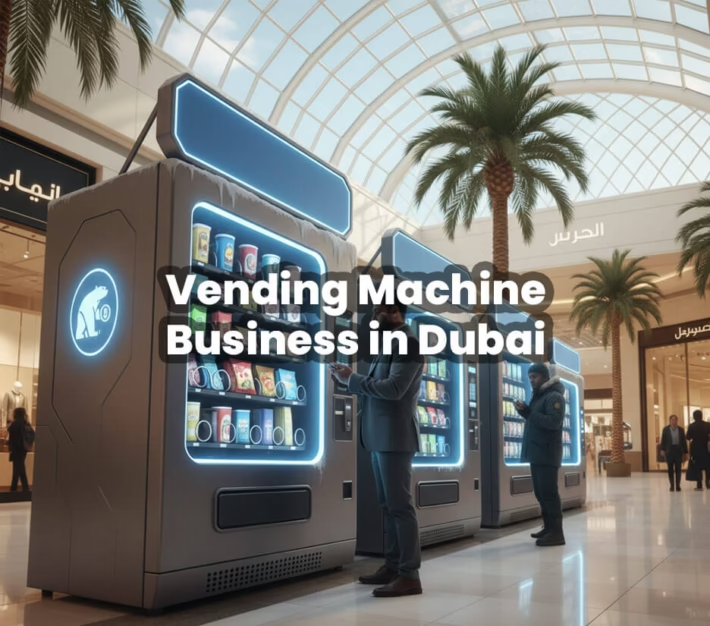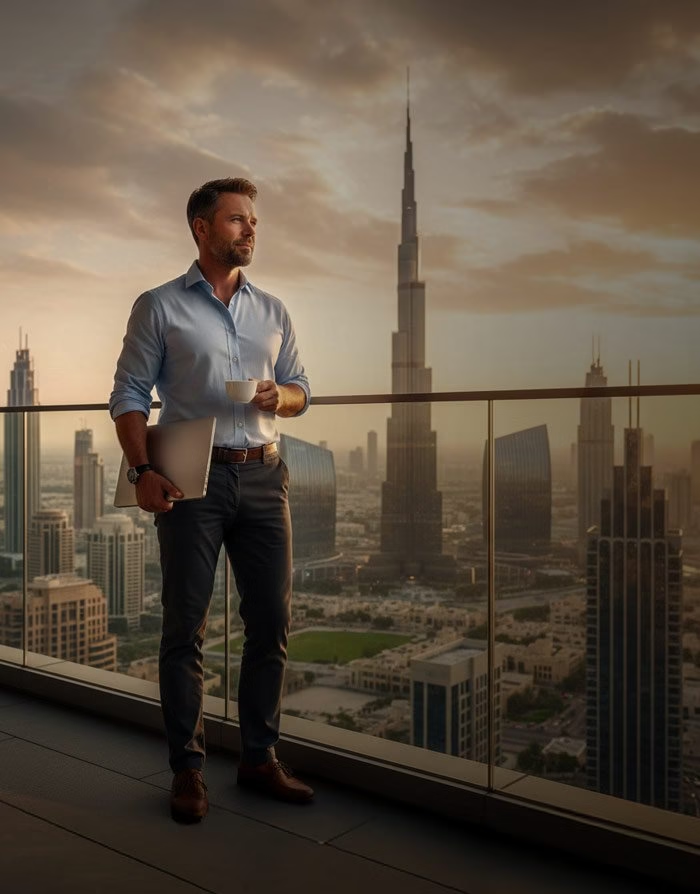Industrial License in Dubai 2025: Cost, Requirements and Benefits
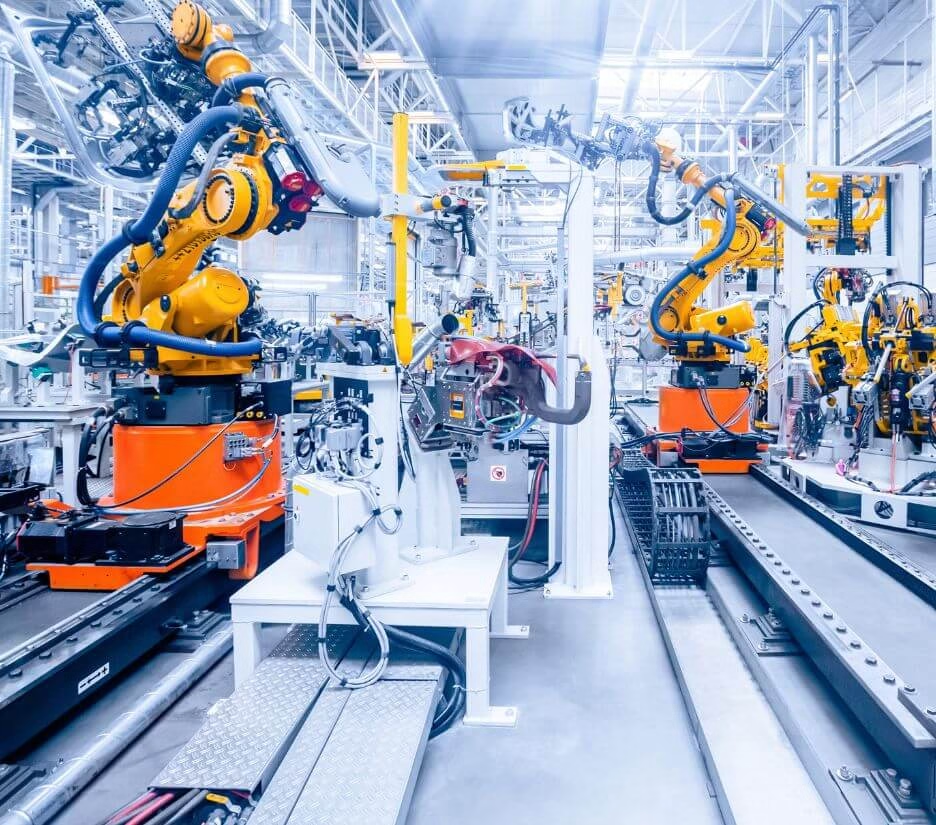
This guide will give you a clear understanding not only of how to obtain an industrial license in Dubai, but also how to structure it in a way that supports your long-term growth in one of the region’s most competitive industrial markets.
Dubai Industrial License
Every manufacturer begins with a single decision: to move from concept to production. In Dubai, the step that makes this possible is the Industrial License.
This license is not simply an approval to operate. It is the formal recognition that gives your factory the right to produce, assemble, and distribute goods both locally and globally. For entrepreneurs in sectors such as food processing, textiles, packaging, electronics, and metal fabrication, it is the key that turns industrial ambition into measurable output.
In 2025, Dubai continues to position itself as a destination for serious manufacturing. Recent reforms from the Ministry of Industry and Advanced Technology, together with initiatives like Make it in the Emirates, have made industrial licensing more accessible, with streamlined digital processes, expanded foreign ownership rights, and competitive incentives in designated industrial zones.
Understanding the Industrial License
An industrial license in Dubai is issued to businesses involved in the manufacturing, processing, and assembly of goods. Unlike a commercial license, which covers trading activities, or a professional license, which is for service providers, the industrial license is specifically designed for companies that transform raw materials or components into finished or semi‑finished products.
Definition and Scope
The industrial license authorizes the operation of factories, workshops, and other facilities where goods are produced. It is issued either by Dubai Economy and Tourism (DET) for mainland setups or by Free Zone authorities such as JAFZA, Dubai Industrial City, or Dubai South.
Typical activities covered include:
- Food and beverage production
- Textile and garment manufacturing
- Metal fabrication and engineering works
- Printing and packaging services
- Electronics and equipment assembly
- Chemical and pharmaceutical manufacturing
- Furniture, plastics, and building material production
How Industrial License Differs from Other Licenses
| License Type | Main Focus | Examples |
|---|---|---|
| Industrial License | Manufacturing and production | Food factories, printing presses, metal workshops |
| Commercial License | Buying and selling goods | Retail shops, import/export traders |
| Professional License | Service‑based expertise | Consultancies, marketing agencies, training providers |
The industrial license not only covers production but also permits importing raw materials and exporting finished products, making it essential for businesses planning to scale regionally and globally.
You might be interested in reading more about
Regulatory Framework
In addition to DET or Free Zone approvals, businesses applying for an industrial license often need clearances from:
- Ministry of Industry and Advanced Technology (MOIAT) for industrial activities
- Dubai Municipality for health and safety compliance
- Civil Defense for fire and facility safety
- Dubai Electricity and Water Authority (DEWA) for utility approvals
These external approvals ensure that facilities meet the environmental, technical, and safety standards required to operate in Dubai’s industrial ecosystem.
Facility Requirements
Unlike many commercial or professional licenses, the industrial license requires a dedicated facility. This can be a leased or purchased factory space within an approved industrial zone. The premises must meet building, safety, and utility regulations and are subject to inspections before and after the license is issued.
Because of the technical nature of the approvals and facility requirements, many entrepreneurs find the process more complex than other license types. Consulting with EZONE business advisors ensures that activity selection, facility approval, and compliance steps are completed smoothly without costly delays.
Mainland vs Free Zone Industrial License
Choosing between a mainland industrial license and a free zone industrial license is one of the most significant decisions for manufacturers setting up in Dubai. Each option offers distinct benefits and considerations depending on your production goals and market focus.
1) Mainland Industrial License
A mainland industrial license, issued by Dubai Economy and Tourism (DET), allows you to operate your manufacturing facility anywhere in Dubai and across the UAE.
Advantages
- Direct access to the UAE market without the need for intermediaries
- Eligibility to work with government entities and bid for large‑scale contracts
- Stronger credibility with local distributors and suppliers
- Opportunity to open retail outlets or showrooms alongside the factory
Considerations
- Mandatory requirement for physical factory space within approved industrial zones
- Subject to corporate tax on annual profits above AED 375,000
- External approvals needed from MOIAT, Dubai Municipality, Civil Defense, and DEWA
- Setup costs are generally higher compared to Free Zone packages
2) Free Zone Industrial License
Free Zones such as JAFZA, Dubai Industrial City, and Dubai South provide competitive industrial licensing packages tailored to manufacturers.
Advantages
- 100 percent foreign ownership with no local partner required
- Customs duty exemptions on imports and exports within the Free Zone system
- Incentives such as reduced utility tariffs and long‑term land leasing options
- Streamlined approval process with centralized Free Zone authorities
- Access to global markets through Dubai’s ports and airports
Considerations
- Direct sales to the UAE mainland require a local distributor or the establishment of a mainland branch
- The facility must be located within the Free Zone boundaries
- Some Free Zones focus on specific industries, which can limit activity flexibility
3) Offshore Company
Offshore entities are rarely used for industrial activities since they cannot operate physical factories in the UAE. These are typically reserved for holding companies or international trading structures without production facilities.
Example Scenario
Consider a food production company planning to manufacture packaged snacks.
- In a Free Zone, the company could benefit from customs duty exemptions on imported ingredients and exported goods, reducing international trade costs.
- On the mainland, the same company could supply UAE supermarkets directly without a distributor, making it easier to secure shelf space in local retail chains.
Step-by-Step Process to Obtain an Industrial License
Applying for an industrial license in Dubai involves more detailed requirements than other types of business licenses. The process is designed to ensure that manufacturing facilities meet technical, safety, and environmental standards.
Identify Your Industrial Activity
The first step is to define the manufacturing activity you intend to carry out. Activities are regulated by Dubai Economy and Tourism (DET) for mainland companies and by free zone authorities for free zone setups. Examples include food processing, textiles, printing and packaging, chemical manufacturing, and equipment assembly.
Prepare a Business Plan
Authorities require a clear business plan outlining your proposed manufacturing activity, production scale, machinery and technology to be used, and the projected workforce. This plan helps regulators assess compliance with industrial standards.
Reserve a Trade Name
Submit a proposed trade name to DET or the chosen Free Zone authority. The name must comply with UAE guidelines, avoiding offensive or religious terms, and must not duplicate an existing registration.
Select Your Facility
Unlike commercial or professional setups, an industrial license requires a dedicated factory, warehouse, or production facility. The space must be located in an approved industrial zone and comply with all building and safety codes.
Obtain Initial Approval
Initial approval confirms that your planned activity is permitted. At this stage, you submit your business plan and facility layout for review by DET or the Free Zone authority.
Secure External Approvals
Before final approval, you must obtain clearances from several external bodies:
- Ministry of Industry and Advanced Technology (MOIAT) for industrial compliance
- Dubai Municipality for health and environmental regulations
- Dubai Civil Defense for fire and safety inspections
- Dubai Electricity and Water Authority (DEWA) for utility approvals
These approvals ensure that your facility is fit for purpose and safe to operate. Because coordinating multiple clearances can be complex, many manufacturers choose to work with EZONE, one of the top business setup consultants in Dubai, who manage the process end to end and prevent costly delays.
Submit Documents and Pay Fees
Required documents typically include:
- Passport copies of shareholders
- Passport‑sized photographs
- Emirates ID and UAE residence visa, if applicable
- Business plan and facility layout
- Trade name reservation certificate
- Initial approval certificate
- Lease agreement for the factory or warehouse
- External approval certificates from MOIAT and other authorities
Collect Your Industrial License
Once documents are verified and fees are paid, your industrial license is issued. Mainland licenses are delivered through DET, while Free Zone authorities provide digital copies via their online systems.
Complete Post License Requirements
After receiving your license, you may need to:
- Register with Dubai Customs for import and export
- Open a corporate bank account
- Apply for residence visas for investors, staff, and dependents
- Ensure ongoing compliance with safety, environmental, and labor laws
Costs of an Industrial License in Dubai
Setting up an industrial or manufacturing business in Dubai involves higher costs than commercial or professional activities due to facility requirements, machinery, and compliance approvals. The total depends on the type of manufacturing, the chosen jurisdiction, and the size of the operation.
Mainland Cost Breakdown
For mainland Industrial Licenses issued by Dubai Economy and Tourism (DET), common fees include:
- Trade Name Reservation: AED 600 to AED 1,000
- Initial Approval Certificate: AED 1,000 to AED 1,500
- Industrial License Fee: AED 8,000 to AED 15,000
- Ejari Tenancy Registration for Factory/Warehouse: AED 2,000 to AED 4,000
- MOIAT Registration and Approval Fees: AED 5,000 to AED 10,000 (depending on activity)
- Civil Defense and Municipality Approvals: AED 3,000 to AED 7,000
- Notarization and Admin Fees: AED 1,500 to AED 3,000
Estimated Mainland Total: AED 20,000 to AED 40,000 (excluding machinery and fit‑out).
Free Zone Packages
Free Zones such as JAFZA, Dubai Industrial City, and Dubai South offer industrial setup packages with incentives like customs duty exemptions and reduced utility tariffs.
- Dubai South: From AED 25,000 (basic industrial license with flexi warehouse options)
- JAFZA: AED 30,000 to AED 50,000 (premium location near Jebel Ali Port)
- Dubai Industrial City: Packages starting at AED 28,000 for SMEs, with scalable land leasing options
These Free Zone setups often require a dedicated facility within the zone, and costs for land or warehouses vary based on size and location.
Hidden and Additional Costs
Beyond the headline fees, manufacturers should budget for:
- Machinery and Equipment Import: Costs vary widely based on industry
- Factory Fit‑Out and Safety Installations: Fire systems, ventilation, storage solutions
- Visa Application Fees: AED 3,000 to AED 5,000 per visa
- Mandatory Health Insurance: From AED 1,500 annually per person
- Utility Deposits and DEWA Connections: AED 5,000 to AED 15,000 depending on facility size
- Annual Maintenance and Inspection Fees: Varies by authority
Renewal and Ongoing Compliance Costs
Annual renewal costs typically include:
- Industrial License Renewal: AED 15,000 to AED 20,000
- Ejari renewal for facility: Based on lease value
- Audit and Environmental Compliance Reports: AED 5,000+ annually for many manufacturers
Budget Scenarios
Small‑Scale Food Processing Unit
- Free Zone industrial package: AED 28,000
- Equipment and fit‑out: AED 60,000+
- 3 visas and insurance: AED 15,000
- Annual Estimate: ~AED 100,000
Medium‑Sized Packaging or Printing Facility
- Mainland license: AED 35,000
- Warehouse lease: AED 80,000+
- Machinery and approvals: AED 150,000+
- 10 visas and insurance: AED 50,000+
- Annual Estimate: ~AED 300,000+
Large‑Scale Manufacturing Plant
- Mainland license: AED 40,000+
- Land lease in Dubai Industrial City: AED 200,000+
- Machinery imports and installation: AED 500,000+
- Workforce visas and compliance: AED 200,000+
- Annual Estimate: ~AED 1,000,000+
Because industrial setups involve higher investments and multiple approvals, unexpected costs are common. Working with EZONE business advisors ensures a transparent cost plan from the start, helping you avoid hidden expenses that can disrupt your budget.
Renewal and Compliance
Securing an industrial license in Dubai is only the first step. To keep your operations running legally, you must renew your license annually and maintain compliance with multiple regulatory authorities.
Annual Renewal Process
Industrial Licenses are valid for one year and must be renewed before expiry. The renewal process generally includes:
- Filing the renewal application with DET or the Free Zone authority
- Providing an updated Ejari tenancy contract or Free Zone lease agreement
- Submitting up‑to‑date inspection reports and environmental clearances
- Paying the renewal and inspection fees
- Ensuring all employee visas and health insurance policies remain valid
Environmental and Safety Compliance
Industrial operations are subject to ongoing inspections and compliance checks from:
- Dubai Municipality for environmental and waste management standards
- Dubai Civil Defense for fire safety and hazard prevention
- Dubai Electricity and Water Authority (DEWA) for utility compliance and sustainable energy use
- Ministry of Industry and Advanced Technology (MOIAT) for adherence to industrial and technical regulations
Failing to maintain compliance can result in penalties, suspension, or closure of the facility until issues are resolved.
Auditing and Reporting Obligations
Most industrial companies are required to submit:
- Annual audited financial statements
- Environmental compliance reports
- Workforce housing and labor law compliance documentation
Common Mistakes to Avoid
- Allowing facility leases or Ejari registrations to lapse before renewal
- Underestimating the time needed for safety inspections
- Overlooking VAT or corporate tax obligations
- Delaying the submission of mandatory audit reports
Benefits of Dubai Industrial License
An industrial license in Dubai offers more than the legal ability to manufacture goods. It provides companies with opportunities to grow, expand, and operate on a global scale while enjoying competitive advantages unique to the UAE.
Legal Recognition and Market Access
Holding an industrial license formally establishes your company as a recognized manufacturer, allowing you to produce goods locally and export internationally with full legal backing.
Customs and Duty Exemptions
Industrial license holders often benefit from exemptions on customs duties for machinery, raw materials, and sometimes finished goods. This reduces operational costs and enhances global competitiveness.
Incentives in Industrial Zones
Designated zones such as Dubai Industrial City, JAFZA, and Dubai South offer reduced utility tariffs, access to modern infrastructure, and long‑term land lease options to support manufacturing growth.
100 Percent Foreign Ownership in Free Zones
Manufacturers can enjoy complete ownership of their operations in free zones, while mainland reforms continue to expand opportunities for foreign investors in key industrial sectors.
Access to Skilled Workforce and Visa Sponsorship
The industrial license enables companies to hire skilled workers and sponsor visas for employees and their dependents, ensuring stability and compliance with labor laws.
Eligibility for Government Support Programs
Initiatives like Make it in the Emirates provide industrial firms with access to funding, export assistance, and networking opportunities with suppliers and buyers.
Long-Term Growth Potential
From regional export opportunities to strong logistics through Dubai’s world‑class ports and airports, the Industrial License is a gateway to scaling production beyond the UAE.
Strategic Support
While the benefits are substantial, making the most of them depends on setting up the license correctly from the start. Many manufacturers rely on EZONE advisors to align their licensing decisions with business goals, ensuring access to incentives while avoiding compliance risks.
Common Challenges and How to Overcome Them
Setting up an industrial operation in Dubai involves more complexity than other license types. Here are some of the most common challenges manufacturers face:
- Facility Compliance Delays
Factories and warehouses must meet strict safety and environmental standards. Delays in inspections or missing documents often slow the process. - Coordinating Multiple Approvals
Approvals from MOIAT, Dubai Municipality, Civil Defense, and DEWA are all required. Overlooking even one can result in application rejection. - Underestimating Costs
Beyond the license fee, machinery imports, fit‑outs, and compliance reports can significantly increase the budget. - Trade Name and Activity Issues
Selecting the wrong activity code or choosing a trade name that violates guidelines often leads to rejected applications. - Renewal Oversights
Forgetting to renew an Ejari lease, submit environmental compliance reports, or file audits can lead to penalties and production delays.
Conclusion
Manufacturing is never just about producing goods; it is about shaping economies, creating jobs, and building something that lasts. In Dubai, the industrial license is the step that transforms an idea on paper into a factory that can compete on a regional and global scale..
While regulatory demands are strict, EZONE business advisors simplify the process by handling approvals and inspections, letting you focus on running your operation.
For manufacturers ready to grow, the Industrial License is not just permission; it’s the foundation for building a resilient, efficient, and future-ready business.
FAQs About Industrial License in Dubai
Any business involved in manufacturing, assembling, or processing goods must obtain an Industrial License. This includes sectors like food and beverage, textiles, printing and packaging, chemicals, electronics, and metal fabrication.
Yes. Most free zones allow full foreign ownership, and recent reforms have expanded 100 percent ownership rights for many industrial activities on the mainland as well.
Yes. Unlike commercial or professional licenses, the industrial license requires a factory, warehouse, or production unit located in an approved industrial area.
- Ministry of Industry and Advanced Technology (MOIAT)
- Dubai Municipality for environmental standards
- Dubai Civil Defense for fire and safety
- Dubai Electricity and Water Authority (DEWA) for utilities
Yes. Industrial license holders in many free zones benefit from customs duty exemptions on machinery, raw materials, and in some cases, exported finished goods.
Yes. The license must be renewed every year. Renewal requires updated tenancy contracts, inspection reports, and compliance certificates.
For most industrial activities, yes. Businesses must submit regular environmental compliance and waste management reports to maintain their license.
EZONE specialize in creating content that highlights business setup and consultancy services. We provide expert insights on company formation, licensing, and the latest industry developments. Through this blog, we aim to equip entrepreneurs and businesses with the knowledge they need to navigate opportunities and challenges in today's market.
